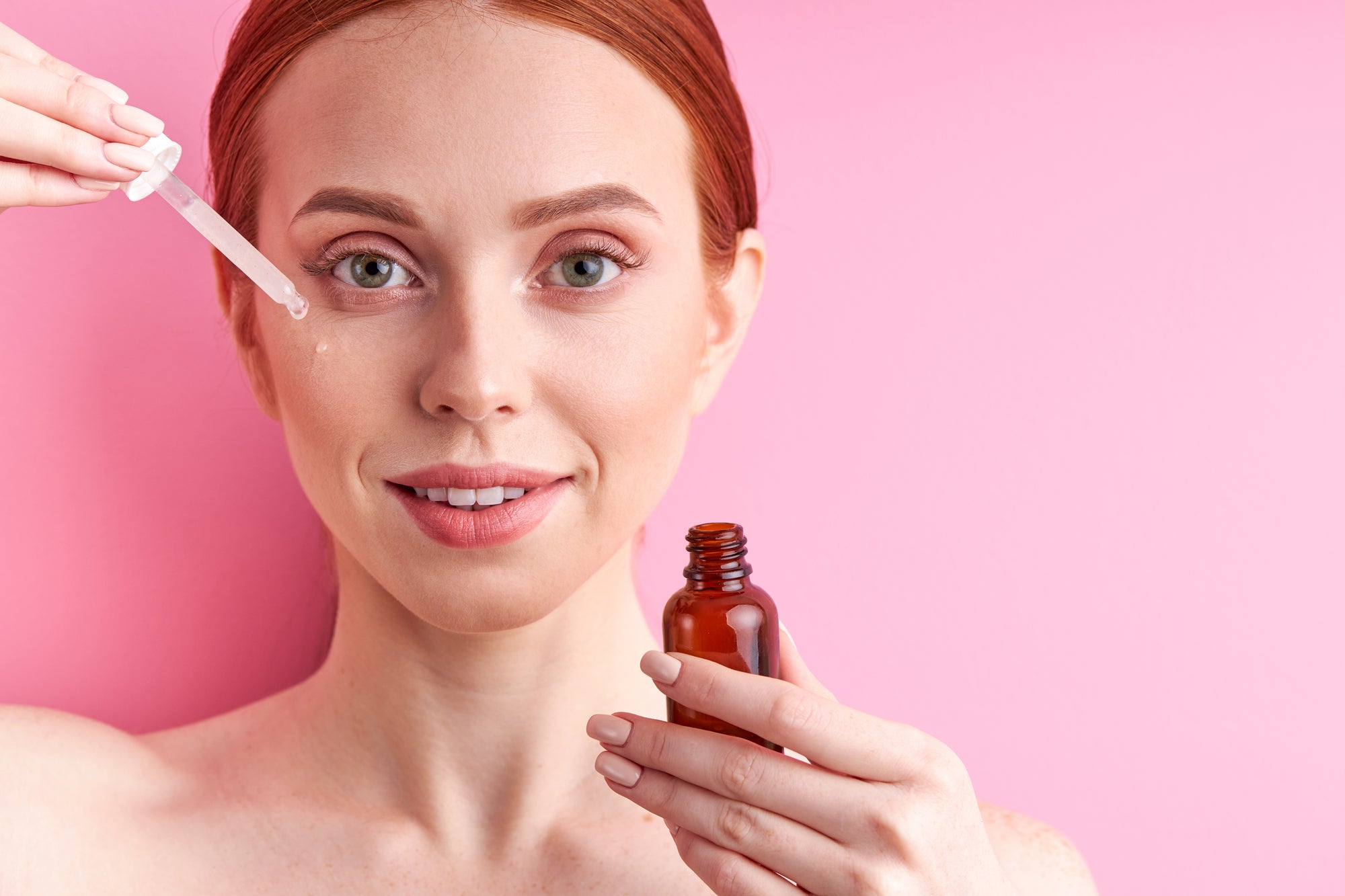

Time to Glow: The Best Natural Oils for Your Skin and How to Use Them
Face oils are all the rage in skincare right now! The right face oil can be amazing for any skin type (yes, even oily skin types). Natural face oils can provide your skin with nutrients, nourishment, and, best of all, luxurious hydration. Looking to learn more about the best natural oils to achieve that plump, hydrated glow? Well look no further - this blog is here to introduce you to the best natural face oils and how to use them. Get ready, because it's time to glow!
The Best Natural Oils for Your Skin
Argan Oil
You may have heard about the benefits of argan oil for your hair, but did you know its also an amazing skin care staple too? Derived from Morocco’s argan tree, this oil is rich in anti-inflammatory linoleic acid and soothing vitamin E. Argan oil can help improve the skin’s ability to retain moisture and to restore the skin barrier, making it an amazing moisturizer for those with dry skin!
Argan oil is great for oily skin types too because it is primarily made up of oleic acid, a fatty acid that helps to regulate sebum (oil) production.
Coconut Oil
Coconut oil is a natural beauty must-have! It’s highly praised, and rightfully so, for its ability to improve moisture retention, aid skin barrier function, and soothe dry skin.
Research shows that coconut oil can be an effective form of treatment for skin conditions that cause dry skin, like atopic dermatitis.
Sunflower Oil
The ultra-healing properties of sunflower seed oil make it the perfect oil to boost hydration. Sunflower oil is full of anti-inflammatory properties that help to soothe the effects of dry skin. It’s also been found to advance the production of skin cells called keratinocytes, the main type of cells found in the epidermis.
Like argan oil, sunflower oil is high in linoleic and oleic acids, helping to preserve the health of your skin’s outer layer and boost overall moisture levels.
Sunflower oil also encourages the production of natural fats in the skin, which promotes an all-around healthier skin barrier.
Avocado Oil
When it comes to natural oils, avocado oil is a bit of a hidden gem. Derived from the pulp of avocados, this oil is chock fully of skin-loving vitamins (like vitamins A, D, and E), antioxidants, and essential fatty acids.
For those with dry, itchy, irritated skin, avocado oil can provide a gentle relief. What’s more, it also contains high levels of lutein and zeaxanthin, which can help to protect the skin from sun damage.
Sea Buckthorn Oil
Sea buckthorn oil is another underrated skincare superhero. This oil comes from sea buckthorn berries and contains vitamins A, C, and E, as well as skin-loving fatty acids such as palitoleic acid (omega-7) and gamma linolenic acid (omega-6).
Sea buckthorn oil is an ideal natural hydrator for oilier skin types. This is because it contains linolic acid, which helps to regulate the skin’s oil production.
In addition to being a great moisturizing oil, sea buckthorn oil also has anti-inflammatory, anti-fungal, and anti-bacterial properties, making it a great skin protector as well!
How to Use Face Oil
Now that you know more about the benefits of natural face oils, it’s time to figure out how to incorporate them into your routine!
Step 1: Pick Your Oil
With so many natural and nourishing options, it can be difficult to decide which oil should be your go-to. Natural oils can have amazing benefits on their own, but just imagine the wonders they could do for your skin when used together. Allow me to introduce you to the Lotus hydration oil! Lotus features all of the oils listed above, and so many other natural, skin-loving ingredients. While originally created to promote scalp health, lotus also acts as an amazing, gentle and lightweight facial oil to promote healthier, softer, more hydrated skin! It’s also chemical free, vegan/gluten free, and has zero synthetic fragrances - what’s not to love?
Step 2: Identify the Needs of Your Skin
Before beginning to use oils, you should make sure to assess the needs of your skin. Those with drier skin may benefit from applying the oil all over their face in combination with a moisturizer or hydrating serum. For some, both morning and night use may be beneficial, but if you find your skin’s starting to feel a little bit too oily, try just sticking to nightly use.
Those with oilier or combination skin may want to play it safe and just use the oil to spot-treat dry areas.
If you have dull skin, you may want to try using face oil as a primer before applying your everyday makeup, for a luminous, hydrated glow.
Whatever the case may be, its always important to listen and cater to the needs of your skin!
Step 3: A Couple Drops Will Do
Face oils contain a high concentration of nutrients, so you don’t need much to feel the effects. Typically, one to three drops of oil will be enough to cover your face - trust us, a little will go a long way!
Step 4: Dab or Pat Oils Onto Your Skin
When applying the oil to your skin, make sure to dab or pat it in, rather than rubbing it in like a moisturizer. This will allow your pores to better absorb the oil, delivering the benefits to your skin quicker and more deeply.
For the Best All-Natural Face Oil - Try Lotus Today!
Sources
Healthline: What Are the Benefits of Using a Face Serum? | WebMD: The Beauty Benefits of Natural Oils | VeryWell Health: Best Oils for Skin | Medical News Today: What Are the Benefits of Sea Buckthorn Oil? | Women’s Health Magazine: The Best Facial Oil for Every Skin Type, from Dull to Blemish-Prone